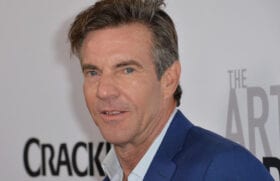There are very few collections done for leadership best practices in sports business and media, maybe because those in the know like to keep their great ideas close to the vest. Veteran sports media executive Rick Horrow, along with two other sports media lifers, Rick Burton and Myles Schrag, spent several years trying to cajole the best of ideas from some of the industry’s biggest names for the past fifty years. The result is The Sports Business Handbook, which has essays and insight from over 100 luminaries in the sports media and business, from Gary Bettman to Ted Leonsis, Ann Meyers Drysdale to Kevin Warren and Tony Ponturo to Mark Lazarus. The book also lays out fifty of the seminal moments in sports business from the last half century.
Cynopsis asked Horrow to give the lowdown on the best practices these bold faces names offered up.
Harrow on some of the common threads throughout the sessions: One of the most common points brought up was the flexibility of leadership. Most of the biggest names we know were battle tested early on in their careers, and have been able to be able to navigate a very fluid marketplace as the industry changed around them. Those who couldn’t haven’t lasted. The other point is listening. When you get to a high point of your career some would say you become inflexible, but those we spoke to almost universally said their listening skills always improved, and with that, they became better learners.
On the need for this book now: As someone who has been in the media industry for a long time, it has always been amazing to me the readiness of some of our best leaders to offer up advice, yet it was always as a one off. We have such change now at a rapid pace, we felt if we didn’t do this now, and chronicle the success of such a wide swath of leaders, they could be lost in time, and for a progressive industry, that’s not a good thing.
On the changing media rights industry: The value of media, and controlling media as a property, has never been stronger. We asked many of those in the book about lessons learned over their careers, and most came back with a common thread; being able to control your message today is more important to drive growth than ever before, and if you rely on listening to those with their hands tied to the past, you are going to miss a lucrative and global future. It is also more important today to have the ability to control your own destiny than to relinquish all you have to someone else.
On the uniqueness of sport vs. other industries: It is by far that everything that is done; live games, media rights, fan engagement, brand marketing, is tied to the emotional component of sports. We are a business of aspiration and inspiration, and I think that is hard pressed for someone in law (and I’m a lawyer), finance or accounting to say. It is a billion dollar business, but the emotional tie of the fan experience is priceless.
On lessons learned for the industry going forward: By far the growth of women and minorities into the industry is critical. Almost every male in the book pointed to the fact that they learn more from a diverse workforce today than ever before, and we have to be focused on creating more opportunities for people of diverse backgrounds if we want to keep growing as a global business. The second key lesson is also tied to that; we all gave to think more globally to uncover new streams of media, revenue and frankly, fans. Those tied to the traditional are going to suffer.




